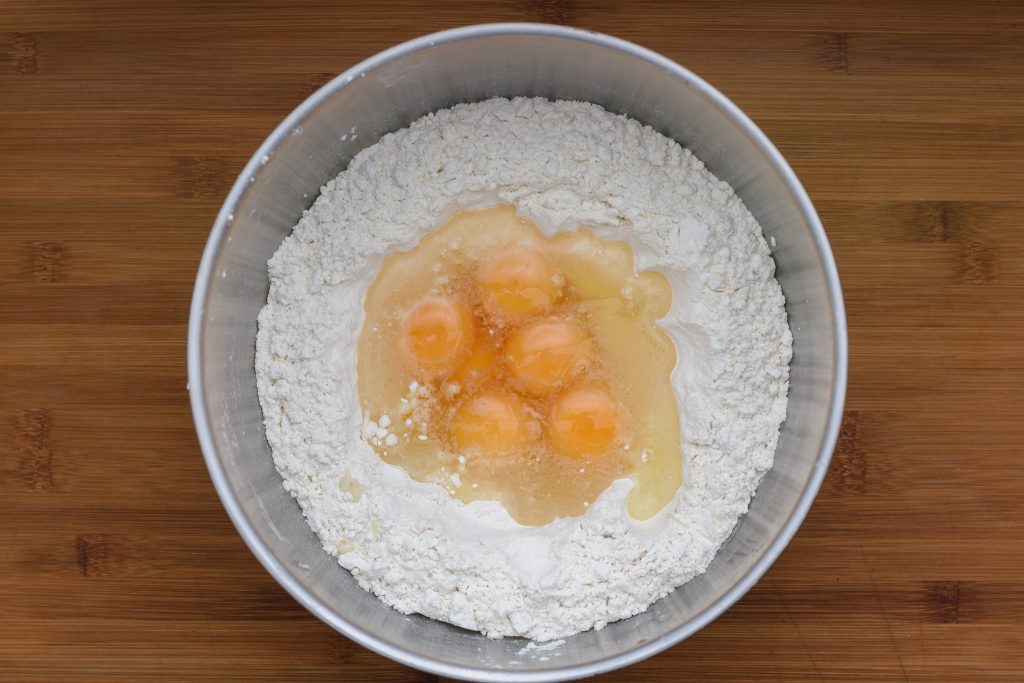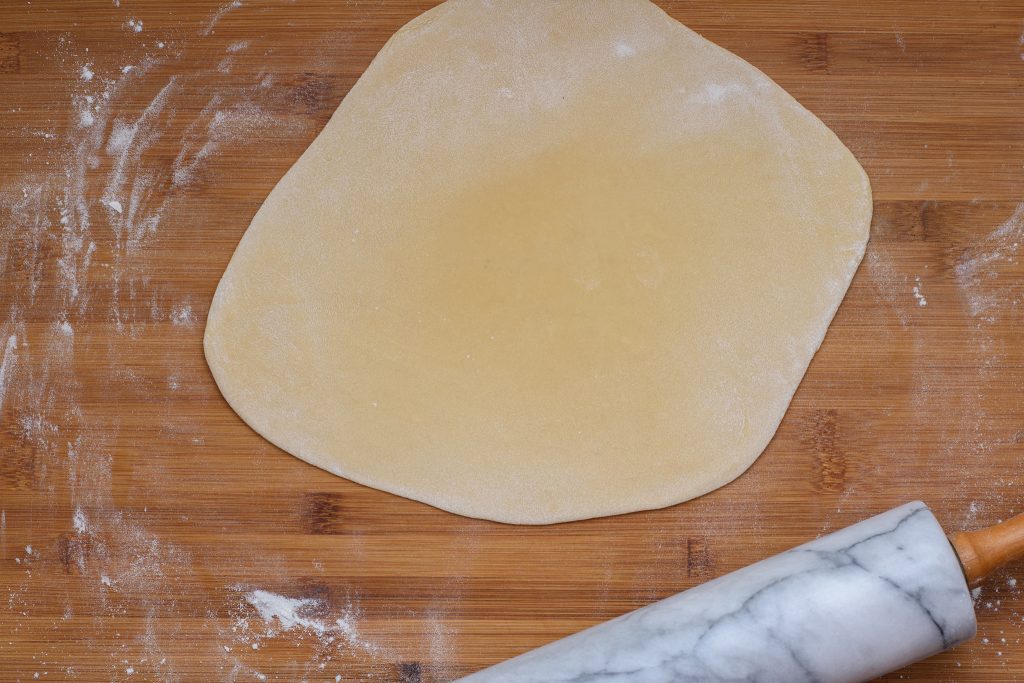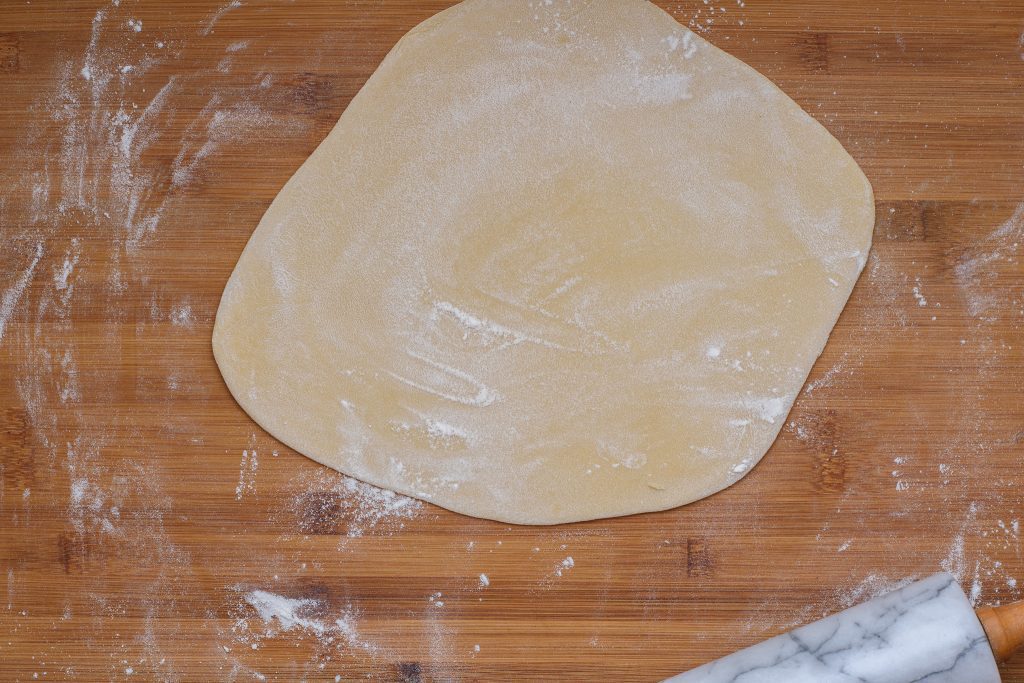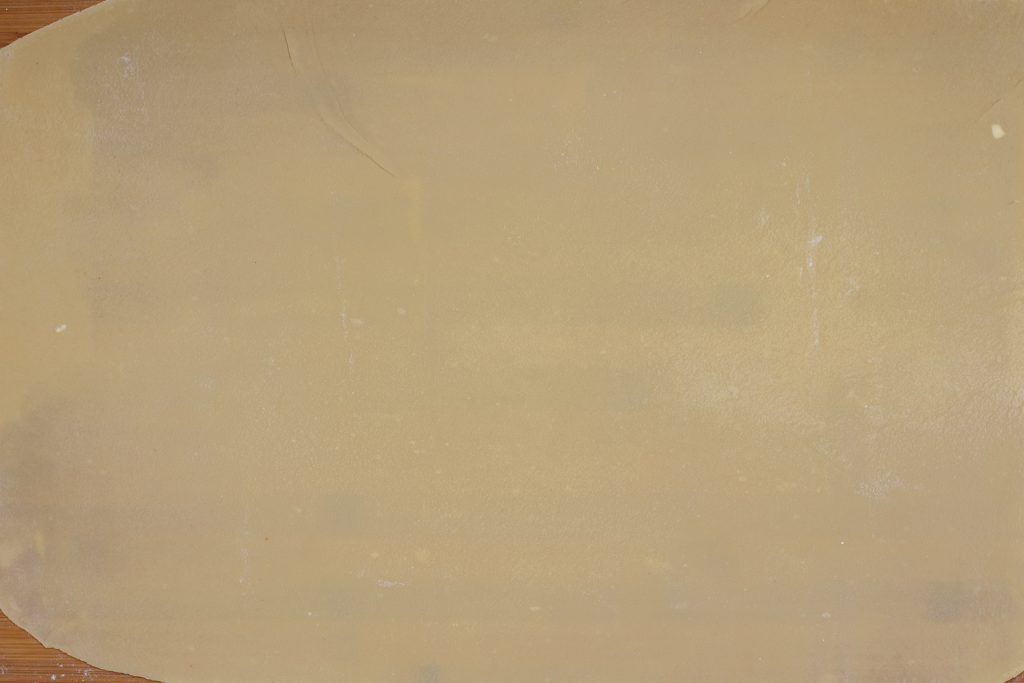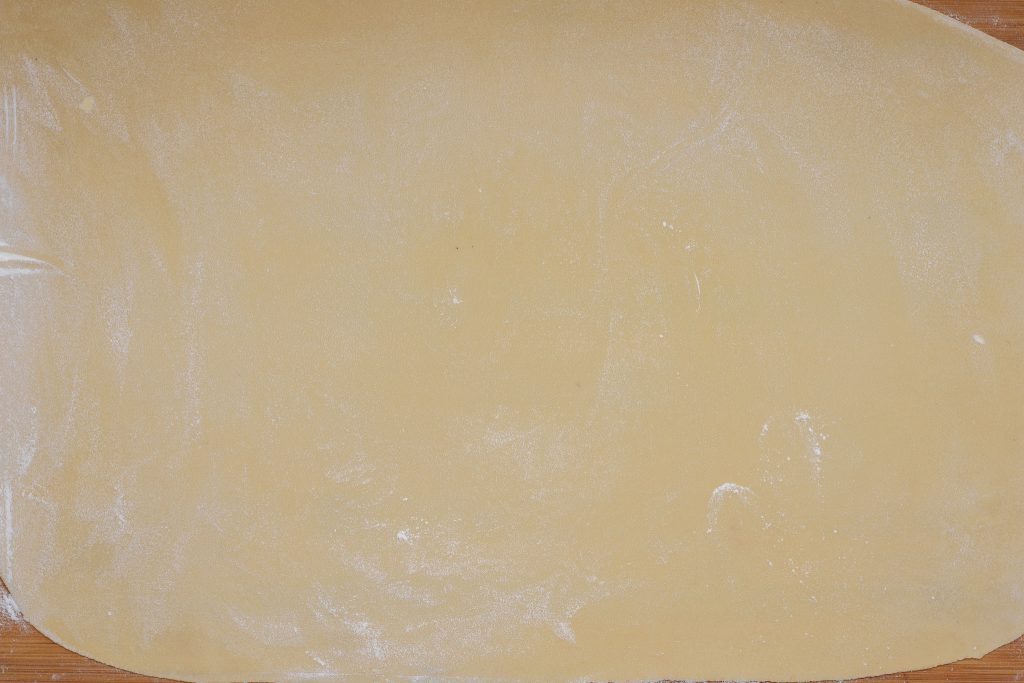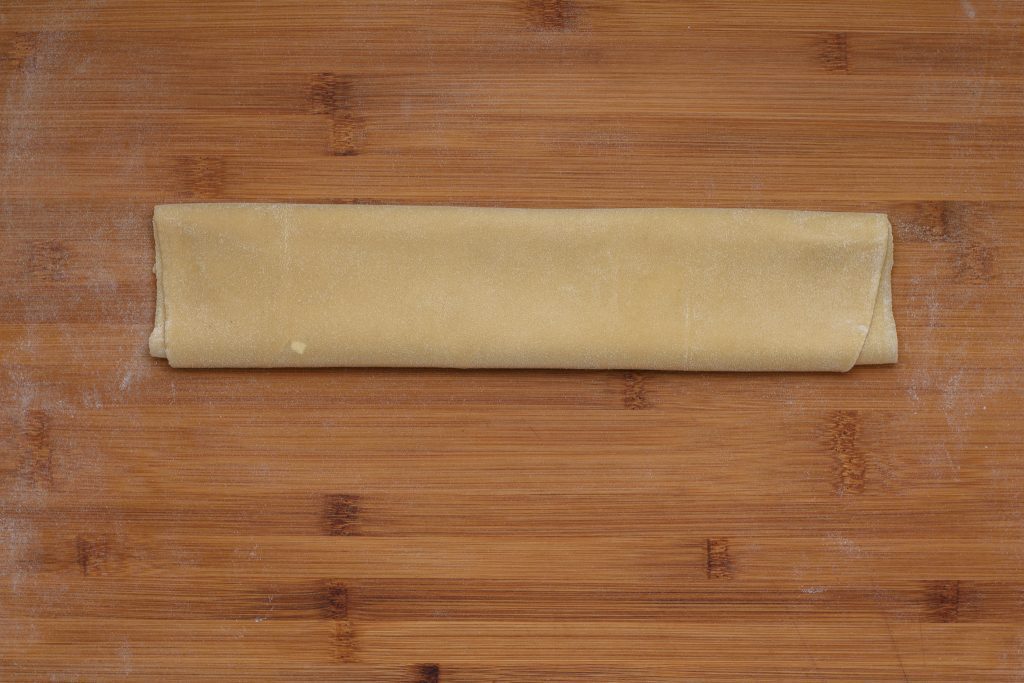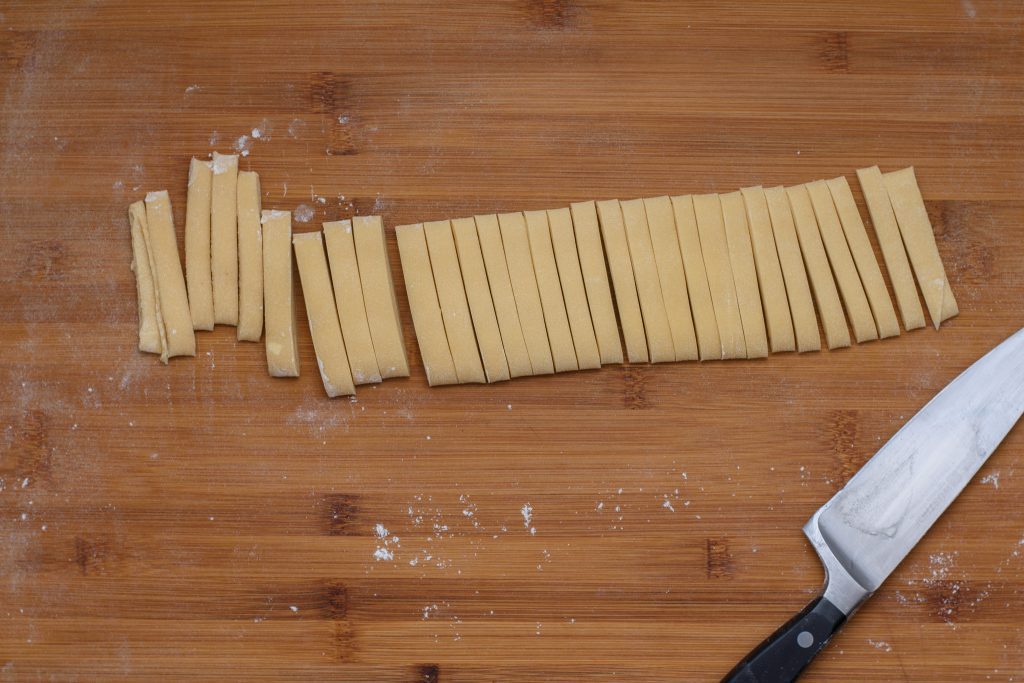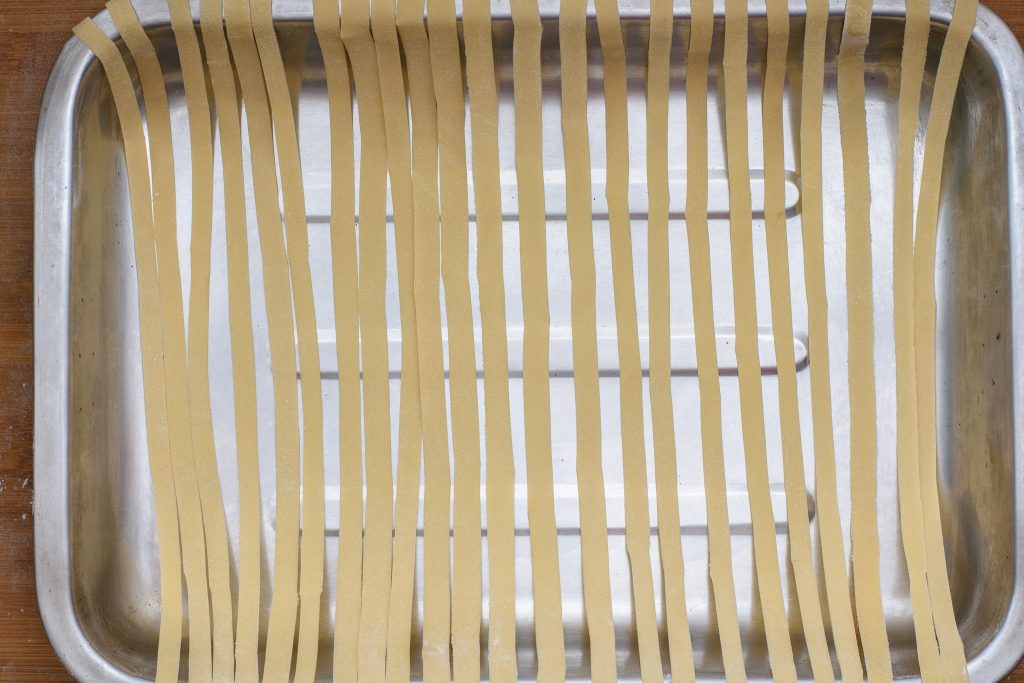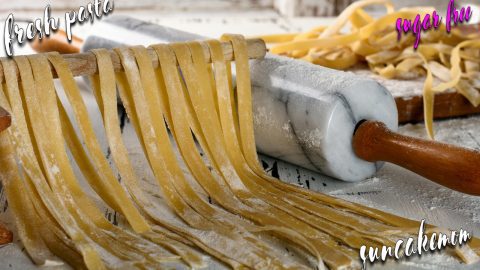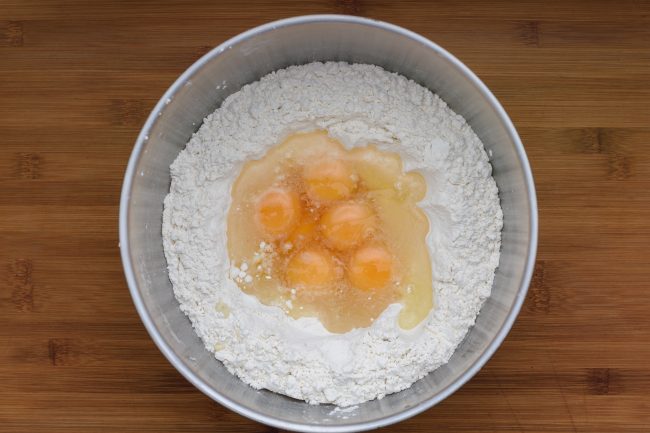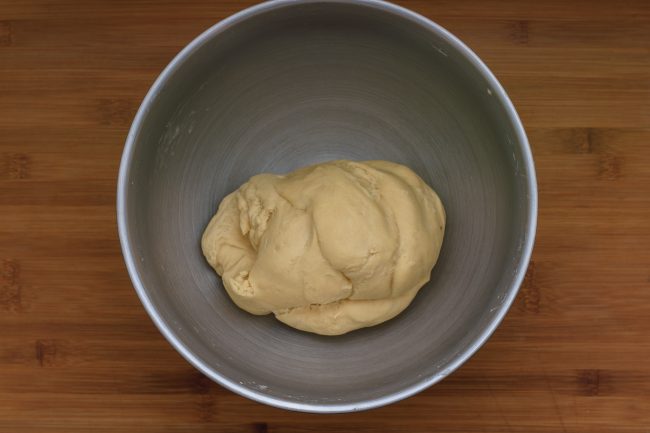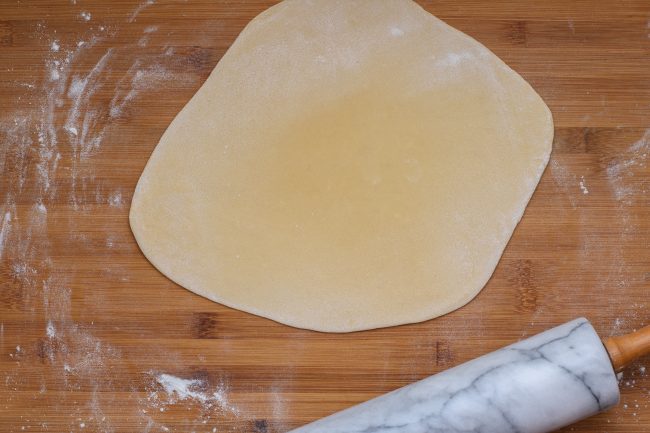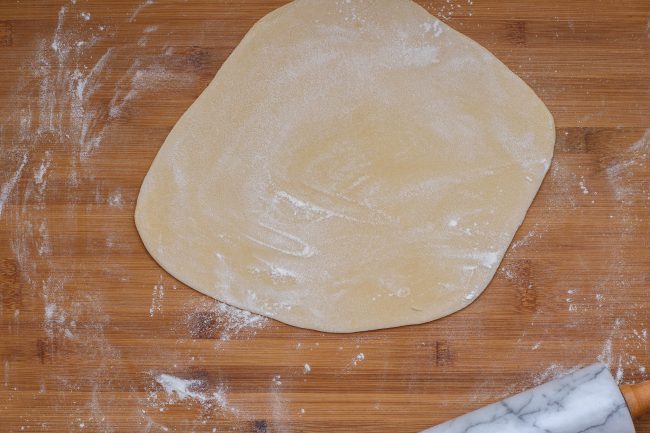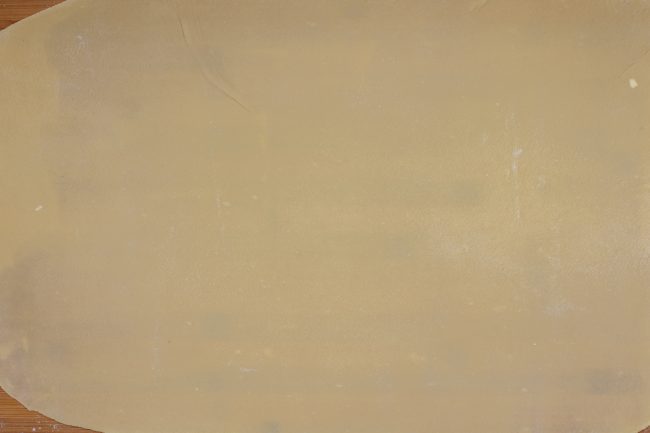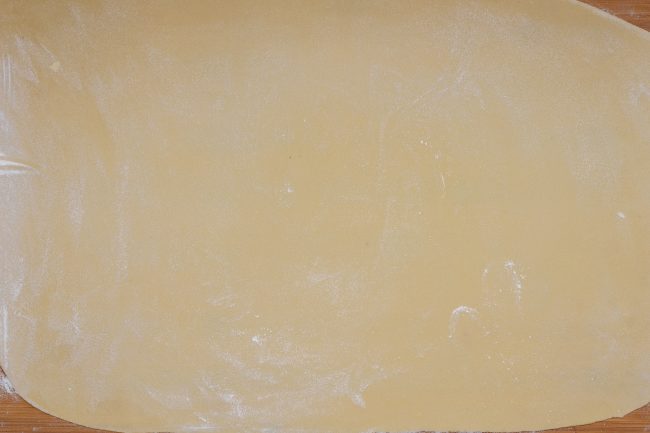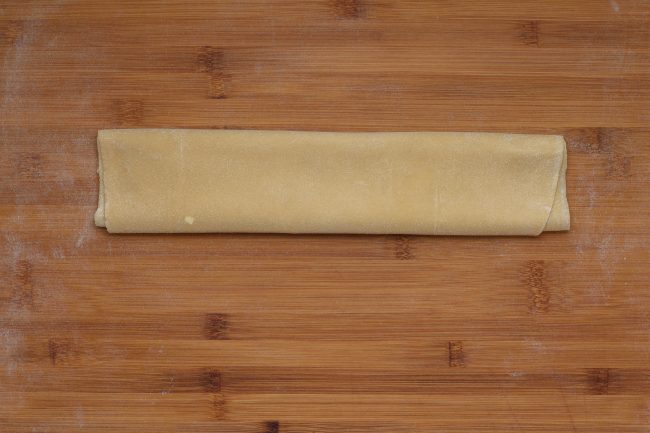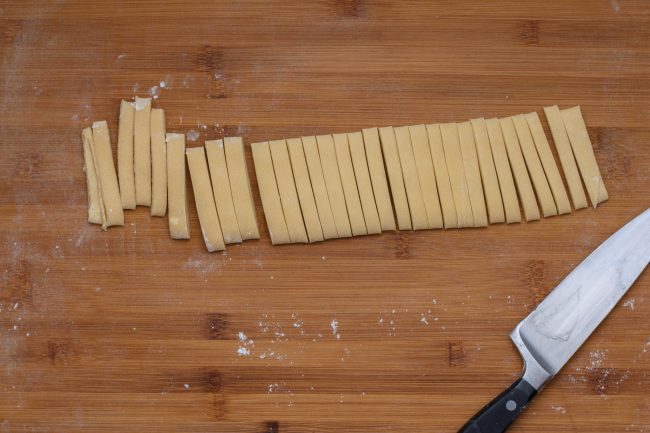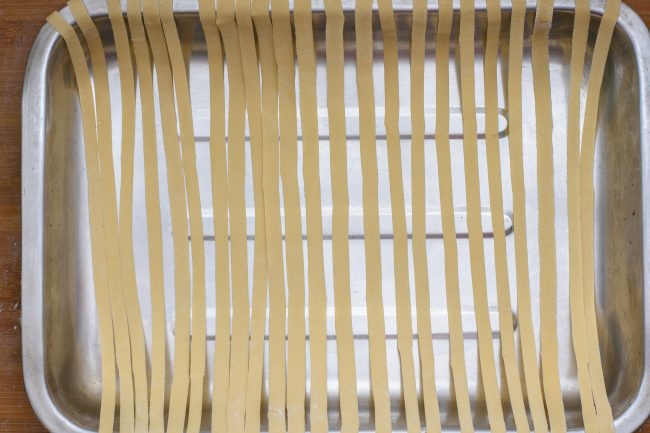Run out of pasta or just looking forward to please an Italian? Let’s make this fresh pasta that will make the world go around!

What is the secret ratio?
The basic egg to flour ratio is 1 egg to every 3.5oz / 100g of flour. Given that, an egg weights about 1.7 – 2 oz / 50 – 60g the weight ratio comes out somewhere 1.5:1.
Some recipes like to play with the ingredients, like adding only 1 egg and 2 egg yolks to every 5.2 oz / 150g flour which adds more fat to the dough, hence makes it softer, but when we measure them, the liquid to flour ratio stays about the same.
What makes a pasta?
Although, it may seem like a crucial ingredient, eggs can be entirely left out and substituted by fruit or vegetable juices or just plain, old water. Back in the days when commercial pasta making wasn’t really a thing, Southern Italian made their Lasagnas sheets with semolina flour and water only, while the Northern regions where semolina wasn’t available, they used all-purpose flour and eggs.
So in case, we run out of eggs in the midst of our family feast preparation, relying on water only to make the pasta can still save the day. Egg-less pasta won’t have the toughness of the egg enriched ones, so having them with butter and herbs only may not cut it, but they could be served under some sauce and protein bits.
What’s in the pasta?
Many people like to take pasta making to a different level and incorporate flavors that are generally reserved for the dish the pasta is served with. Spinach or tomato are frequently used to color and subtly flavor the pasta but if we really want to make a statement cuttlefish ink (black), beets (purple), carrots (red) or pumpkins (orange) can all be used to achieve a unique appearance.
Coloring the pasta is as simple as liquifying the solid ingredients and mix them to the flour. Sure, this implies to adjust the other ingredients, like eggs or water, so we don’t end up with an unmanageably sticky dough, but once we come to this stage, we most likely mastered basic pasta making and know what we are doing.
Why make pasta at all?
Even though pasta making is much easier now than it was before the industrial revolution, few cooks name it as their favorite pastime in the kitchen. So even though we can make fresh pasta as quickly as our water reaches boiling temperature, cleaning up after pasta making takes a lot more.
Probably this is why we like to stock up with shop bought dried pasta and this is why before shops sold dried pasta, people made their own dried pasta too. Nowadays, not many ventures to make huge batches of pasta for drying but it’s good to know that if we accidentally make a month of worth of fresh pasta, we can simply air dry it until brittle, then keep it in a dry, cool place until we need it.
Who likes pasta?
Although pasta is consumed in one form or the other all over the world, Italians are known to be quite fond of it. They eat 60lb / 27kg pasta per person a year while Americans average about 20lb / 9kg, yet the obesity rate in Italy is 1 out of 10 compared to the US of 3 out of 4.
How many pastas are out there?
There are 310 officially recognized pasta forms out there and since it’s the staple of Italian cuisine, we tend to categorize them as they do by the way of serving it.
Pasta dishes can be divided into three main categories, depending on the way people eat it.
We can serve pasta as the main protagonist of the dish with some sauce or condiment, like we do with Pesto Pasta or Pasta Carbonara (Bolognese spaghetti is not even a thing but yes, in there too). In such meals the texture of the pasta really makes a difference so making them fresh can make a huge difference with the finished dish.
The second group, where pasta is thrown into a soup to provide additional texture and more importantly, energy. There are also a myriad of soup outside Italy, using various types of pasta as the main protagonists, such as the Noodle soup or the more obscure ones like Lebbencs soup or Sopa de estrellas.
To be part of the third and last group, pasta could be incorporated into the dish then baked in the oven, like we do it with Lasagna or Tuna casserole. This generally implies the pasta to be cooked beforehand, otherwise we can guarantee the softness of the end result.
How to cook pasta?
Not like softness is what required from a pasta according to Italian requirements. Cooking pasta the Italian way, al dente, is basically a slightly undercooked pasta which occurs right at that moment when the center of the cooking pasta disappears. Al dente, literally means to the tooth and describes rice or pasta that is firm to the bite.
Interestingly pasta, that is cooked al dente, has a lower glycemic index than pasta that is cooked soft.
Fun fact that dry pasta can absorb about 2.5 times of its weight in water. So, if we overcook our dry pasta, we can have more of it by the weight, since all we eat is water. The same can’t be applied to fresh pasta though as it already contains moisture from eggs or the added water, but we can still overcook it and add 50% more weight to it.
Either way don’t tell the Italians or if there is any around, just cook the pasta as it should be, and enjoy the ride!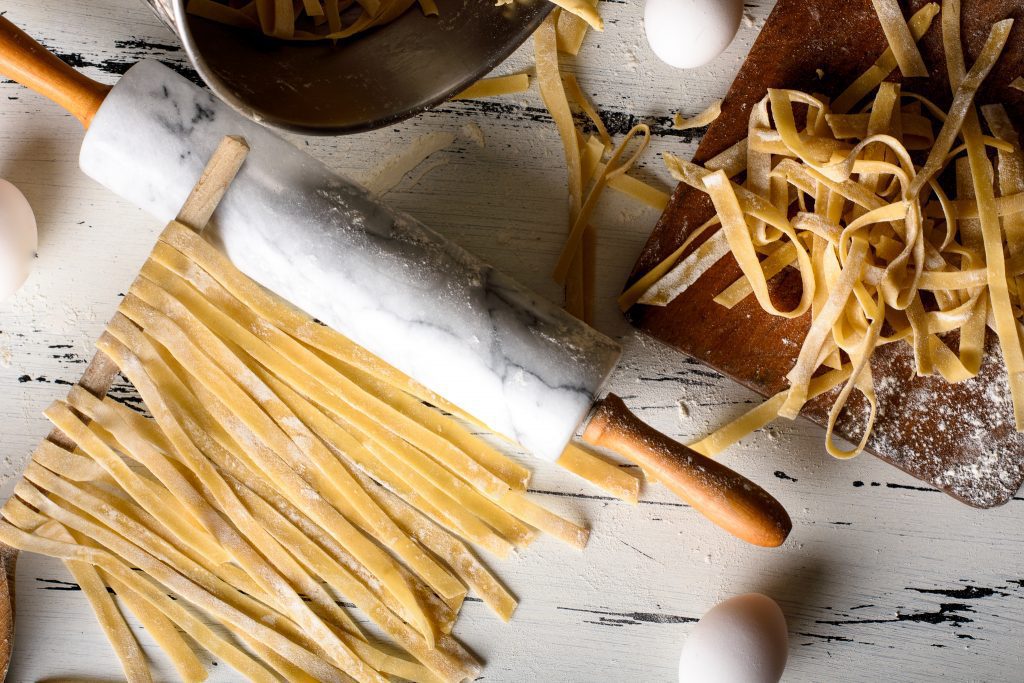
Ingredients
- 5 cups / 600g Flour
- 6 medium / 300g Eggs
How to make Fresh pasta
- Measure flour and eggs. We can make pasta kneading by hand but if we have an electric tool to help us in this tiresome task, all the better.

- Knead the dough until it comes together. If we have a hard time kneading with eggs, only add a bit of water by the tablespoon to soften up the dough.

- Divide the dough if it is a big batch then roll it out on a slightly floured surface.

- When the dough starts to stick to the rolling pin, apply a thin layer of flour onto both sides.

- Roll the dough until the pattern of the rolling board becomes visible through the pasta.

- Prepare to cut the pasta into the desired shape. Apply a thin layer of flour onto both sides of the pasta again.

- Roll it up.

- With a sharp knife, slice the rolled up pasta.

- Open the pasta rolls and put them somewhere where they don’t stick together. We can get a special pasta hanger, simply lightly flour some unused working surface or find any other ingenious solution. Use the pasta up immediately or let it dry in a dark and dry, possibly airy cool place. Store the dried pasta for a year in a dry cool place. If grey or any other colored spots start to appear, discard the pasta and find a less humid place for it next time.

Enjoy!
Fresh Pasta Recipe
Ingredients
- 5 cups Flour
- 6 medium Eggs
Instructions
- Measure flour and eggs. We can make pasta kneading by hand but if we have an electric tool to help us in this tiresome task, all the better.

- Knead the dough until it comes together. If we have a hard time kneading with eggs, only add a bit of water by the tablespoon to soften up the dough.

- Divide the dough if it is a big batch then roll it out on a slightly floured surface.

- When the dough starts to stick to the rolling pin, apply a thin layer of flour onto both sides.

- Roll the dough until the pattern of the rolling board becomes visible through the pasta.

- Prepare to cut the pasta into the desired shape. Apply a thin layer of flour onto both sides of the pasta again.

- Roll it up.

- With a sharp knife, slice the rolled up pasta.

- Open the pasta rolls and put them somewhere where they don't stick together. We can get a special pasta hanger, simply lightly flour some unused working surface or find any other ingenious solution. Use the pasta up immediately or let it dry in a dark and dry, possibly airy cool place. Store the dried pasta for a year in a dry cool place. If grey or any other colored spots start to appear, discard the pasta and find a less humid place for it next time.

Notes
Nutrition
Pin now, Enjoy later!

